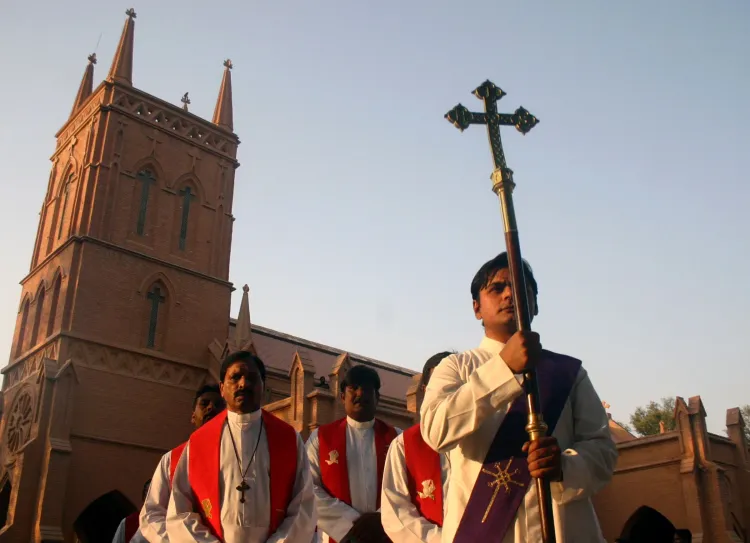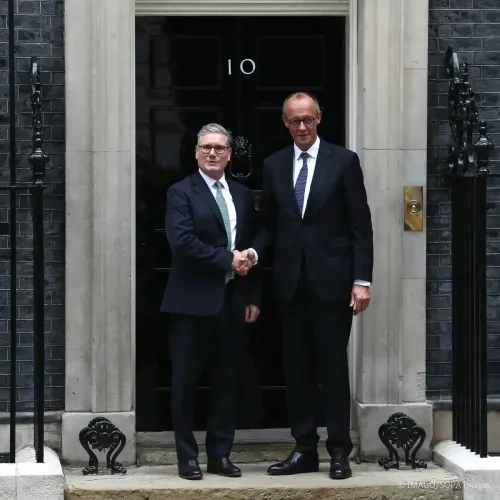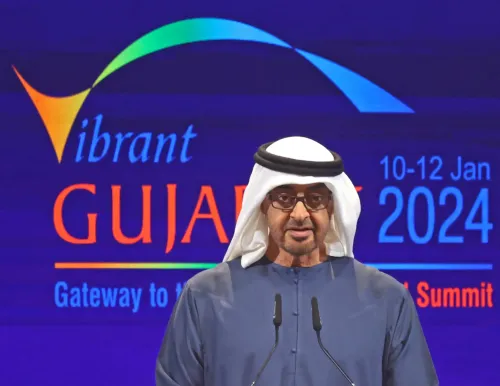Are Pakistan's Christians Still Awaiting Justice Two Years After the Jaranwala Attacks?

Synopsis
Key Takeaways
- Systemic persecution of Christians persists in Pakistan.
- Two years after the Jaranwala attacks, no convictions have been made.
- Blasphemy laws are often misused, leading to violence.
- Urgent reforms are necessary to protect marginalized communities.
- International attention is needed for accountability and support.
Karachi, Aug 29 (NationPress) The Christian minority in Pakistan, which constitutes merely 1.6 percent of the populace, continues to face entrenched persecution and marginalization, as highlighted in a report released on Friday.
Two years after the tragic Jaranwala attacks in Punjab province—where a mob, incited by unfounded blasphemy claims, destroyed 26 churches and over 80 homes—there have been no convictions, marking this as one of the most devastating anti-Christian acts in Pakistan’s history, as noted by Dimitra Staikou in Defence Net.
Individuals within the Christian community seeking accountability for the August 16, 2023 events still endure intimidation, while Pakistan’s contentious blasphemy laws continue to be wielded as instruments of oppression through baseless accusations, the report indicated.
Ranked eighth on Open Doors’ 2025 World Watch List, Pakistan stands as one of the most challenging environments for Christians globally.
Despite the risks, some individuals in Pakistan have chosen to embrace Christianity, although their numbers are dwindling as the nation trends towards greater religious uniformity. The threat to their security is not a distant concern—it is a harsh reality faced every day.
While executions are infrequent, mere allegations can incite lethal mob violence.
On June 4, 2025, an anti-terrorism court in Faisalabad acquitted ten individuals accused of burning a church and plundering a Christian residence.
The plaintiff’s attorney attributed the outcome to police negligence, and similar verdicts are anticipated in related cases. Meanwhile, Christian women and girls—particularly those who are impoverished or disabled—are experiencing escalating incidents of abduction, sexual violence, and coerced conversions, often without repercussions.
Amnesty International reported that of the 5,213 individuals arrested during the Jaranwala riots, only 380 were detained, with the remainder released.
A year later, 228 received bail and 77 were acquitted. “Despite promises of accountability, the authorities’ failures have cultivated an environment of impunity,” stated Babu Ram Poudel, Amnesty’s Deputy Regional Director for South Asia.
On August 16, 2025, Christians convened in Jaranwala to protest the absence of justice. The Victims’ Committee condemned governmental inaction and cautioned against efforts to fracture the community.
“We are profoundly disheartened,” remarked coordinator Lala Robin Daniel. “We urge all Christians to engage in peaceful sit-ins and leverage social media to advocate for justice.”
Samson Salamat, president of Rawadari Tehreek, criticized both government officials and self-serving individuals within the Christian community.
“Even the Punjab minister, who refers to minorities as ‘the jewel in the crown,’ has not visited Jaranwala,” he lamented.
Outside the Lahore Press Club, activists Ghazala Shafique and Luke Victor demanded stringent punishment for the offenders.
“Jaranwala serves as a stark reminder of the profound intolerance faced by Christians,” they stated. Michelle Chaudhry, president of the Cecil and Iris Chaudhry Foundation, highlighted the misapplication of blasphemy laws.
“No Christian would dare commit blasphemy,” she emphasized. “However, the failure of institutions to safeguard citizens has become glaringly evident. We implore the government to deliver justice and honor its commitments to rehabilitation and support.”
Blasphemy accusations in Pakistan remain a contentious issue. Although death sentences are seldom carried out, the allegations themselves often provoke violence. The situation necessitates urgent international scrutiny.
A comprehensive strategy is crucial; reforming blasphemy laws, ensuring judicial accountability, and initiating educational campaigns to combat religious bias are essential. Empowering Christian communities—especially women and children—through economic and social assistance, alongside global advocacy and grassroots mobilization, is vital for preserving their future and dignity in Pakistan.










